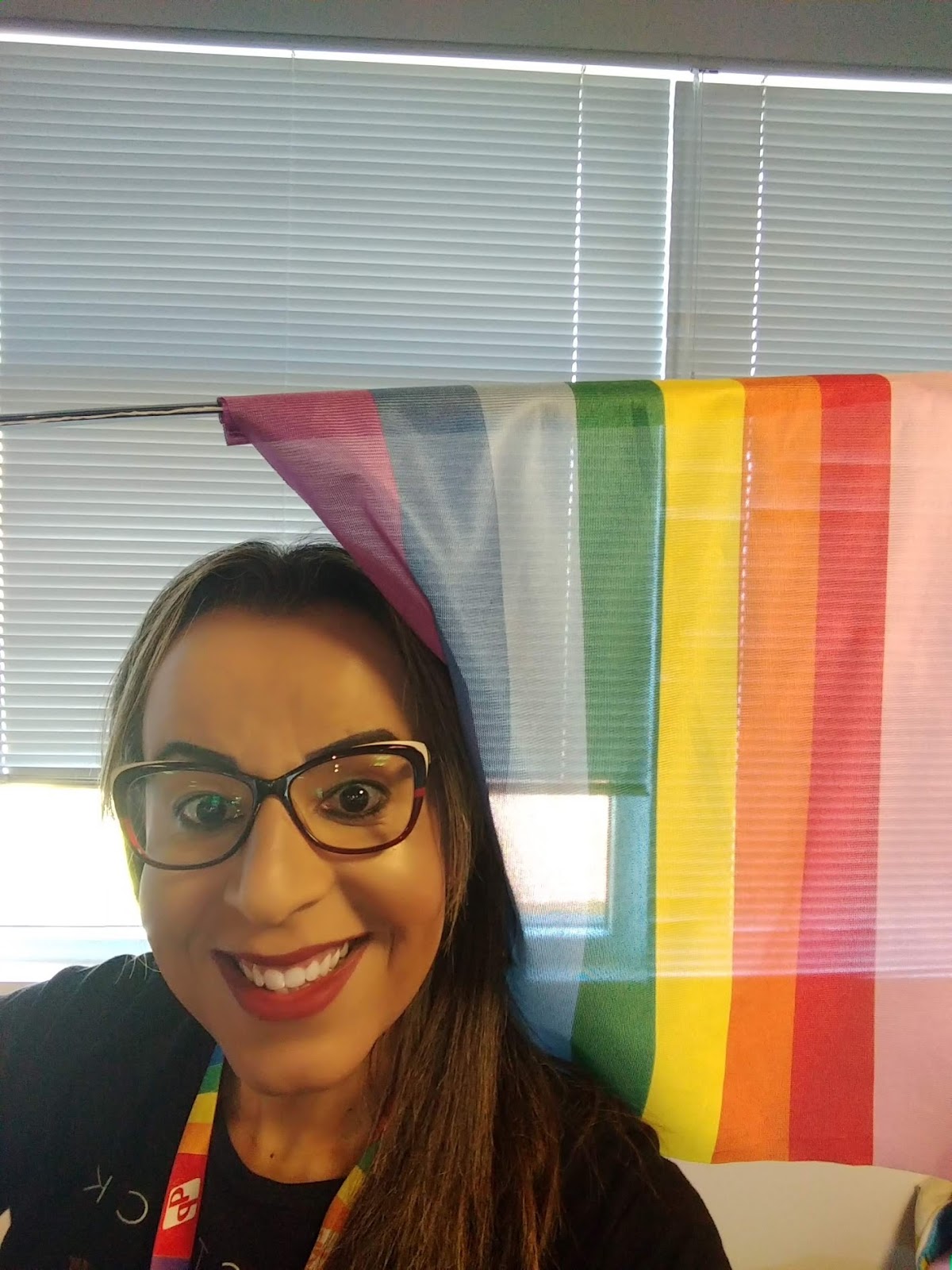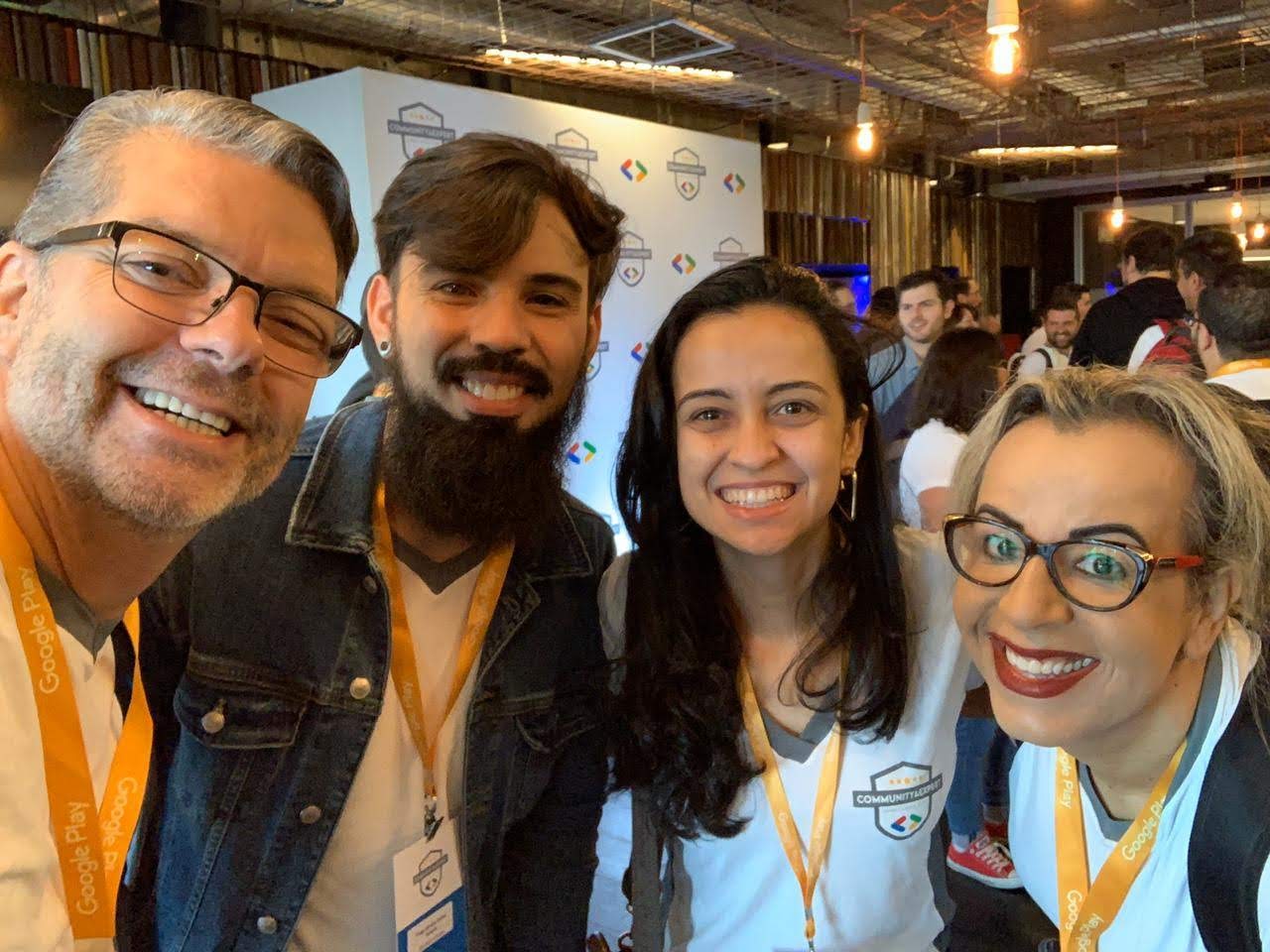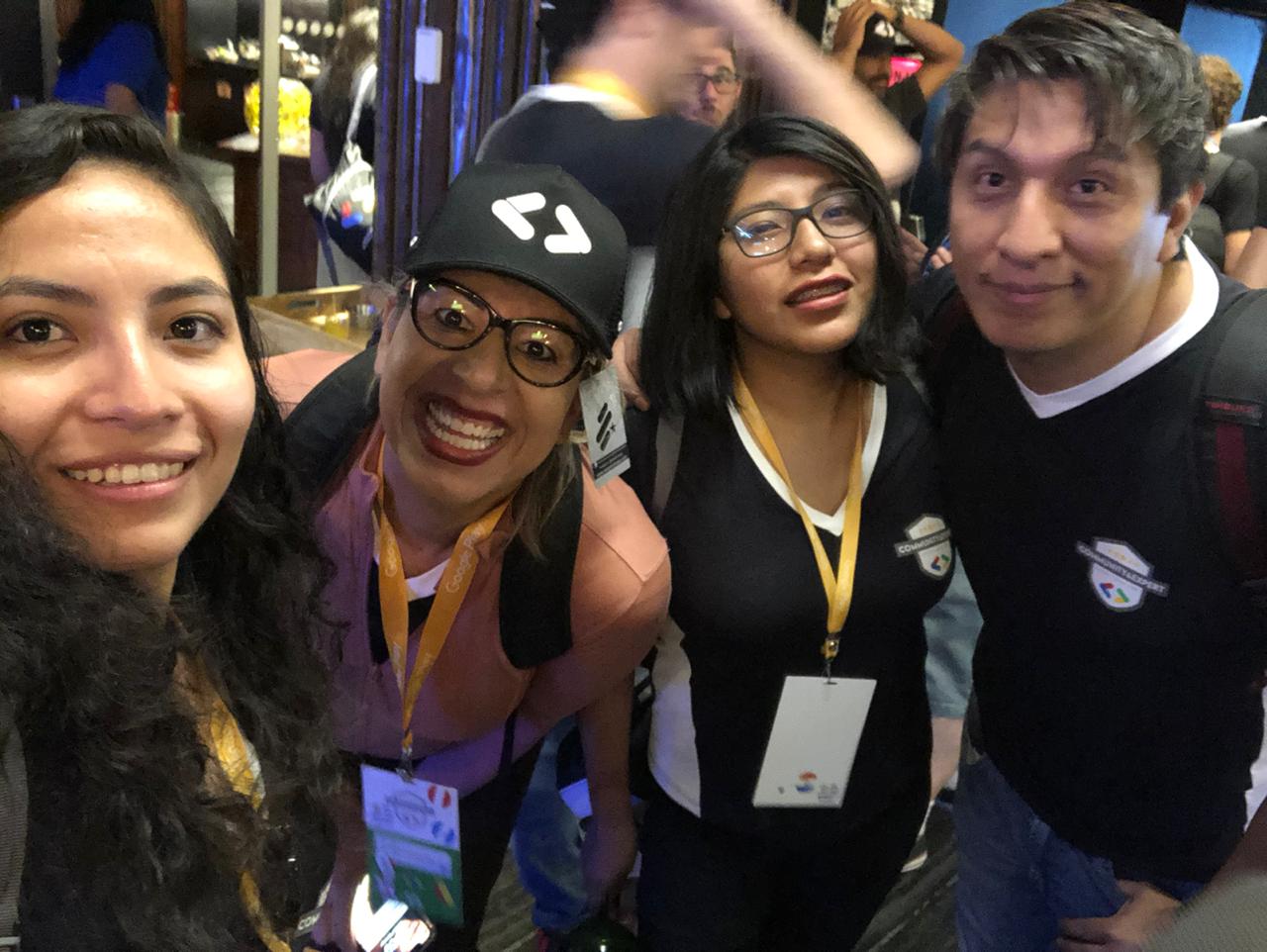Welcome to #IamaGDE - a series of spotlights presenting Google Developer Experts (GDEs) from across the globe. Discover their stories, passions, and highlights of their community work.
Evelyn Mendes, the first transgender Google Developer Expert, is based in Porto Alegre, Brazil, and has worked in technology since 2002. “I've always loved technology!” she exclaims, flashing a dazzling smile. As a transgender woman, Evelyn faced discrimination in the tech world in Brazil and relied on her friends for emotional support and even housing and food, as she fought for a job in technology. Her excruciating journey has made her a tireless advocate for diversity, equity, and inclusion (DEI), as she works toward her vision of a world of empathy, acceptance, and love.
Meet Evelyn Mendes, Google Developer Expert in Firebase

Current professional role
Evelyn works in systems analysis and development and currently focuses on Angular, Flutter, and Firebase. “I believe they are technologies with frame frameworks and architectures that have a lot to offer,” she says.
As an architecture consultant and specialist software engineer at Bemol Digital, Evelyn manages development teams that work with many different technologies and led Bimol Digital, through the process of switching their mobile app, originally developed in React Native, to Flutter. Now, Evelyn supports the migration of all Bimol Digital’s mobile development to Flutter. “Today, all of our new mobile projects are developed in Flutter,” she says. “I’m responsible for the architecture. I'm a PO and a Scrum Master, but I also enjoy teamwork, and I love helping the team work better, more efficiently, and most importantly, enjoy their work!”

DEI Advocacy
Evelyn’s kindness toward others is reflected in her advocacy for diversity, equity, and inclusion (DEI) in the IT and tech world. She takes a broad approach to diversity, advocating for safe spaces in technology for mothers, women in technology, Black founders, immigrants, and Native Brazilians to learn. “Diversity and inclusion are not just values or attitudes to me; they are a part of who I am: my life, my struggles,” she says.
Evelyn views technology as a way to help underrepresented groups achieve more, feel empowered, and change their own lives. “Technology will give you a better shot to fight for a better life,” she says. “I want to bring more trans people to technology, so that they have real chances to continue evolving in their professional lives.”

When Evelyn came out as transgender, she experienced intolerance that kept her out of the workforce for over a year, despite her innumerable skills. “Brazil, especially the southern part where I’m from, is still, unfortunately, not a very tolerant society,” she says. “Due to who I was, I wasn’t able to find a job for over a year, because people didn’t want to work with someone who is transgender.”
Evelyn was fortunate enough to have friends who supported her financially (there were times when she didn’t even have enough money to buy food) and mentally, helping her believe she could be true to herself and find happiness. She encourages others in her position to seek financial and emotional independence. “In terms of your emotional wellbeing, I’d recommend starting with identifying the abusive relationships around you, which can come from different sides, even from your family,” she says. “Try distancing yourself from them and those who hurt you. This will help you in your evolution.”
Evelyn recommends trans people in Brazil connect with groups like EducaTransforma, which teaches technology to trans people, and TransEmpregos, which helps trans people to enter the labor market. For trans and cis women in Brazil, Aduaciosa Oficial facilitates networking (tech 101 for women, classic dev community, meetups workshops), and B2Mamy supports women’s entrepreneurship.

Evelyn often speaks to companies about diversity in IT and how to be welcoming to women, LGBTQIA+ people, and other underrepresented groups. “I like it because I see that more and more companies are interested in the subject, and I think I can be a voice that has never been heard,” Evelyn says. “I support inclusive events, and when invited, I participate in lectures, because I know that a trans woman, on a stage where only white, ‘straight,’ cis people are normally seen, makes a lot of difference for many people, especially LGBTs.”
At BrazilJS 2017, Evelyn invited every woman at the event to join her on stage for a photo, to show how many women are involved in technology and that women are integral to events. She called her fellow speakers and attendees, as well as the event’s caterers, cleaners, and security personnel to the stage and said, “Look at the stage. Now, no one can say there aren’t any women in tech.”
At her current company, Evelyn approaches diversity as a positive and transformative thing. “I know that I make a difference just with my presence, because people usually know my story.”
In addition to her technology work, Evelyn is involved in the Transdiálogos project, which aims to train professionals to end discrimination in health services. She is also part of TransEnem in Porto Alegre, an EJA-type prep course to help trans people go to college. “I don't miss the chance to fight for diversity and inclusion anywhere,” Evelyn says. “That's what my life is. This is my fight; that's who I am; that's why I'm here.”

Learning Firebase
Evelyn said she was drawn to Firebase because “Firebase is all about diversity. For poor, remote areas in Brazil, without WiFi or broadband, Firebase gives people with limited resources a reasonable stack to build with and deploy something to the world. Firebase uses basic HTML, is low code, and is free, so it’s for everyone. Plus, it’s easy to get familiar with the technology, as opposed to learning Java or Android.”
To demonstrate all the functionality and features that Firebase offers, Evelyn created a mobile conversation application that she often shows at events. “Many people see Firebase as just a NoSql database,” she says. “They don't know the real power that it can actually offer. With that in mind, I tried to put in it all the features I thought people could use: Authentication, Storage, Realtime Database with Data Denormalization, Hosting, Cloud Functions, Firebase Analytics, and Cloud Firestore.”

Users can send images and messages through the app. A user can take a picture, resize, and send it, and it will be saved in Storage. Before going to the timeline, messages go through a sanitization process, where Evelyn removes certain words and indexes them on a list called bad_words in the Realtime Database. Timeline messages are also stored in Realtime. Users can like and comment on messages and talk privately. Sanitization is done by Cloud Functions, in database triggers, which also denormalizes messages in lists dedicated to each context. For example, all the messages a user sends, besides going to the main list that would be the timeline, go to a list of messages the user sent. Another denormalization is a list of messages that contain images and those that only contain text, for quick search within the Realtime Database. Users can also delete and edit messages. Using some rules Evelyn created in Cloud Firestore, she can manage what people will or will not see inside the app, in real time. Here’s the source code for the project. “I usually show it happening live and in color at events, with Firebase Analytics,” Evelyn says. “I also know where people are logging in, and I can show this working in the dashboard, also in real time.”
Becoming a GDE
When Evelyn first started learning Firebase, she also began creating educational content on how to use it, based on everything she was learning herself—first articles, then video tutorials. At first, she didn’t want to show her face in her videos because she was afraid she wasn’t good enough and felt embarrassed about every little silly mistake she made, but as she gained confidence, she started giving talks and lectures. Now, Evelyn maintains her own website and YouTube channel, where she saves all her video tutorials and other projects.

Her expertise caught the attention of Google’s Developer Relations team, who invited Evelyn to apply to be a GDE. “At first, I was scared to death, also because I didn't speak any English,” Evelyn recalls. “It took me quite some time, but finally I took a leap of faith, and it worked! And today, #IamaGDE!”
As a GDE, Evelyn loves meeting people from around the world who share her passion for technology and appreciates the fact that her GDE expertise has allowed her to share her knowledge in remote areas. “The program has helped me to grow a lot, both personally and professionally,” she adds. “I learned a lot and continue learning, by attending many events, conferences, and meetups.”

Evelyn’s advice to anyone hoping to become a GDE
“Be a GDE before officially becoming one! Participating in this program is a recognition of what you have already been doing: your knowledge, expertise, and accomplishments, so keep learning, keep growing, and help your community. You may think you’re not a big enough expert, but the truth is, there are people out there who definitely know less than you and would benefit from your knowledge.”






